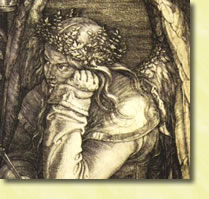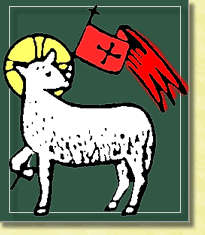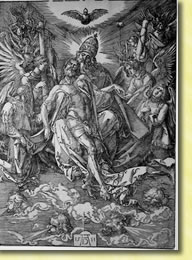Exodus 17: 1-7
Psalm 78
Philippians 2:1-13
Matthew 21:23-32
 Among other things, the Bible is a book of questions. The very first question in the Bible is the question the serpent asks of Eve, “Did God actually say, You shall not eat of any fruit of the garden?” (Gen. 3:1) And the first question God asks in the Bible is “Where are you?”followed by the questions “Who told you that you were naked? Have you eaten of the tree of which I commanded you not to eat?” (Gen. 3:9, 11) More questions: “Did you not know that I must be about my Father’s business?” (Luke 2:49) “My God, My God, Why have you forsaken me?”(Mark 15:34) “Simon, son of John, Do you love me?” (John 21:15) What these questions all have in common is that they are not attempts to find out information, but are rhetorical. They are questions that aim for a response from the hearers.
Among other things, the Bible is a book of questions. The very first question in the Bible is the question the serpent asks of Eve, “Did God actually say, You shall not eat of any fruit of the garden?” (Gen. 3:1) And the first question God asks in the Bible is “Where are you?”followed by the questions “Who told you that you were naked? Have you eaten of the tree of which I commanded you not to eat?” (Gen. 3:9, 11) More questions: “Did you not know that I must be about my Father’s business?” (Luke 2:49) “My God, My God, Why have you forsaken me?”(Mark 15:34) “Simon, son of John, Do you love me?” (John 21:15) What these questions all have in common is that they are not attempts to find out information, but are rhetorical. They are questions that aim for a response from the hearers.
In both the Old Testament and the gospel readings this morning we find accounts of an exchange of questions between two groups of people, and like the other questions I mentioned, these are rhetorical questions. They are not aimed at getting information, but in provoking a response from those being questioned. In the Exodus reading, Moses has led the Israelites out of Egypt, and they find themselves in the desert without water. In response, they ask Moses: “Why did you bring us up out of Egypt, to kills us and our children and our livestock with thirst?” At the end of the reading, the text states: “They tested the Lord by saying, ‘Is the Lord among us or not?” Moses responds to the situation with his own set of questions: He asks the people, “Why do you quarrel with me? Why do you test the Lord?’ ” He then asks God, “What shall I do with this people?” (Exodus 17:2-4)
The gospel reading takes place at the end of Jesus’ ministry, immediately following his triumphal entry into Jerusalem, followed by his driving the money changers out of the temple. The chief priests and the elders then ask Jesus a question, “By what authority are you doing these things, and who gave you this authority?” (Matt. 21:23) Presumably these leaders are asking by what authority he cleared out the temple, but the text also mentions that Jesus had healed many blind and lame people who had come to him in the temple (v. 14). And, of course, Jesus’ entire ministry had included healings, exorcisms, and miracles, so “these things” likely refers not only to Jesus’ actions in the temple, but to all the signs that accompanied his ministry, as well as to his preaching and teaching. As did Moses, Jesus responds to the question with his own question, “The baptism of John, from where did it come? From heaven or from man?”(v. 25)
As readers of the Bible, we have a certain advantage to those who originally asked the questions of Moses and Jesus. Because we have the entire book of Exodus and the entire book of Matthew, we know the answer to the questions. At the beginning of Exodus, God had appeared to Moses in the burning bush and said, “I have surely seen the affliction of my people who are in Egypt and have heard their cry . . . and I have come to deliver them out of the hand of the Egyptians and to bring them up out of that land to a good and broad land, a land flowing with milk and honey . . .” (Exodus 3:7-8) At the baptism of Jesus by John the Baptist, toward the beginning of Matthew’s gospel, a voice from heaven proclaims, “This is my beloved Son, with whom I am well pleased.” (Matt. 3:17) So God did not lead the people of Israel into the desert so that they would die of thirst. The authority with which Jesus did the things he did is the authority of the voice that named him as the Father’s “beloved Son.”
As I mentioned above, these are rhetorical questions. None of them are about getting information. Both sets of questions—the question the Israelites asked Moses, and the question that the chief priests and the elders asked Jesus–are variations on the same question: “Is the Lord present among us or not?” Rhetorically, they are demands that, if God is with Moses, if God is with Jesus, then this presence needs to be made evident in a clear and unambiguous way. (more…)
 It is only within the last generation that affluent Western Christians have suggested that same-sex sexual activity might be morally permissible. The unanimous consensus of the previous Christian tradition (Roman Catholic, Orthodox, Protestant and Anglican) has been that homosexual activity is immoral, condemned by both Scripture and Church tradition. The vast majority of critical biblical scholars continue to recognize that the plain-sense reading of the biblical texts prohibits homosexual activity, and that Scripture endorses only one permissible model for sexual activity: exclusive life-long commitment within heterosexual marriage.
It is only within the last generation that affluent Western Christians have suggested that same-sex sexual activity might be morally permissible. The unanimous consensus of the previous Christian tradition (Roman Catholic, Orthodox, Protestant and Anglican) has been that homosexual activity is immoral, condemned by both Scripture and Church tradition. The vast majority of critical biblical scholars continue to recognize that the plain-sense reading of the biblical texts prohibits homosexual activity, and that Scripture endorses only one permissible model for sexual activity: exclusive life-long commitment within heterosexual marriage.














